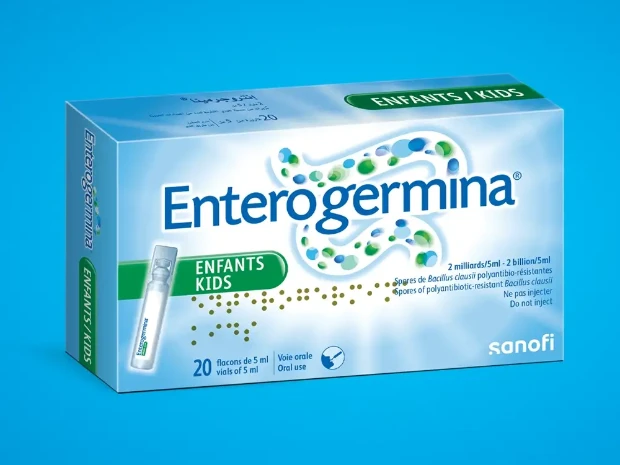5 min Read
Diarrhea is not a pleasant experience, but it is something that all individuals inevitably go through at some point in their lives. While in some cases, diarrhea can indicate a significant issue; in other cases, you may simply need to take some anti-diarrhea medicine for adults.
To help keep yourself healthy, read on to learn more about diarrhea causes and prevention, OTC diarrhea medicine, and when you should see a doctor for diarrhea.
What causes diarrhea?
Diarrhea occurs when an individual has loose, watery stools that are more frequent than usual1 and are the result of an interference with your normal digestive processes.
Typically, before your food reaches your small intestine, it has been transformed into liquid form. Then, your small intestine and colon soak up the fluid and convert it into the solid feces you excrete.
However, when an individual is experiencing diarrhea, something has hindered the small intestine or colon's capacity to absorb the fluid2. This, in turn, results in runny, watery fecal matter, or diarrhea.
What is the difference between acute and chronic diarrhea?
Medical professionals generally organize diarrhea into two categories: acute and chronic.
✓ Acute diarrhea lasts from a few days to two weeks and results from a bacterial, viral, or parasitic infection.1
✓ Chronic diarrhea lasts longer than four weeks and is usually the result of a serious issue such as:1
- Ulcerative Colitis - a condition that produces inflammation and sores in your large intestine and rectum
- Crohn's disease - a condition that causes inflammation in your digestive tract (small intestine and colon)
- Irritable Bowel Syndrome (IBS) - a chronic intestinal disorder affecting your colon2
Paying attention to how long your diarrhea lasts and how frequently it occurs is key to getting to the bottom of what is causing it.
I have had diarrhea for under 48 hours. Should I go to the doctor?
When it comes time to determine whether or not you should see a doctor for diarrhea, the general rule is that if you have it for less than three days with no other symptoms, then you don't need to go to the doctor.3 If this is the case, then there isn't necessarily anything else wrong. Unfortunately, sometimes you just have diarrhea for a couple of days.
To treat it, buy some diarrhea medicine in Dubai, drink lots of liquids, and have plenty of toilet paper.
I have had diarrhea for two days and it hasn't improved/is getting worse. Should I go to the doctor?
If after a couple of days your diarrhea hasn't improved and is getting worse, then you want to go to see a doctor. In many cases, this suggests that you have a viral infection that needs more time to run its course, or that you need antibiotics for a bacterial or parasitic infection.
Alternatively, diarrhea that lasts for multiple days may indicate that you are regularly consuming something that doesn't sit well in your stomach3. If diarrhea continues, you will want to look into these possibilities.
Furthermore, long-lasting chronic diarrhea could indicate a more serious condition3, which is explored further down in the article.

I have diarrhea and I am dehydrated. What does that mean?
It is relatively common for individuals experiencing diarrhea to feel dehydrated3 as the body is losing a significant amount of liquid. That being said, dehydration needs to be dealt with because in severe cases, it can be life-threatening.
The most common sign of dehydration is feeling incredibly thirsty. After this, you may develop dry skin and mouth and may be producing urine that is dark yellow. If this is the case, make sure you are replenishing the fluid levels in your body by consuming3 water, clear broths, or sports drinks.
However, if you also feel weak, faint, or fatigued, along with your diarrhea and dehydration, then you must head to the emergency room, as your body may require IV fluids2 to replenish your levels.
What other symptoms should I look out for?
In addition to the length of time that you have had diarrhea and the severeness of your dehydration, there are a few other symptoms you should be looking out for:3
✓ Mouth sores
✓ Severe stomach or rectal pain
✓ Mucus-filled liquid in your excretion
✓ Blood in your excretion
✓ High fever
✓ Significant weight loss
If you are suffering from any of these symptoms alongside diarrhea, then you should see a doctor. Otherwise, taking trusted anti-diarrhea medicine for adults such as Enterogermina should be the relief that you need to keep you on the go.
Browse Our Products
Enterogermina®’s range will scan the gut for intestinal flora imbalance and deliver billions of good bacteria to treat both the condition and associated symptoms. 14
- Mayo Clinic. Diarrhea Definition. https://www.mayoclinic.org/symptoms/diarrhea/basics/definition/sym-20050926. Last visited 11th Feb 2021.
- World Health Organization. Readings on diarrhea. https://apps.who.int/iris/handle/10665/40343. Last visited 7 March 2021.
- Cedars-Sinai Medical Center. Diarrhea. https://www.cedars-sinai.org/health-library/diseases-and-conditions/d/diarrhea.html. Last visited 7 March 2021.



.webp/jcr:content/Enterogermina-AE-capsule.webp)